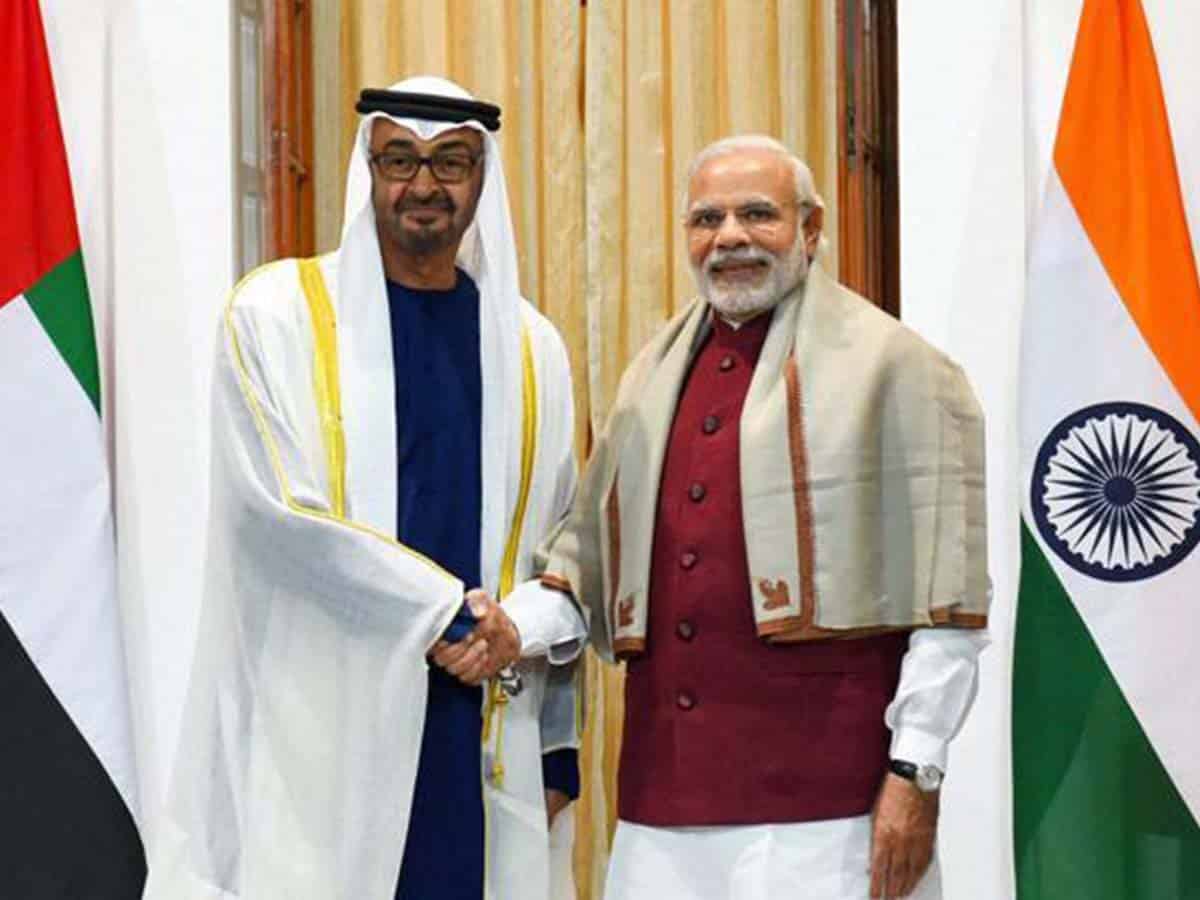
Talmiz Ahmad
Talmiz Ahmad, the author, a former diplomat, holds the Ram Sathe Chair for International Studies, Symbiosis International University, Pune, and is Consulting Editor, The Wire. Siasat.com is reproducing his article from The Wire. For the convenience of the readers, this exhaustive exposition has been divided into three parts. This is Part One
In his six years as prime minister, Narendra Modi has expended more time, effort and commitment to cultivating ties with the Gulf region than any of his predecessors, and India’s initiatives have been fully reciprocated by his regional counterparts. These interactions have been assiduously promoted with frequent exchanges of visits, warm expressions of personal goodwill, even affection and several agreements to impart substance to the relationship in political, energy and economic areas.
Now, when the world is grappling with the extraordinary challenge posed by the coronavirus pandemic, relations shaped, elevated and solidified by the prime minister have been jeopardised – not by external rivals – but by cohorts from within his own ideological and political bandwagon, the Hindutva brigade. All of a sudden, tweets on social media and reports on mainstream television and newspaper columns are awash with harsh and angry exchanges between India’s Hindu nationalists and some sections of the Gulf’s elite – royal family members, business persons, professionals and human rights activists.
These tirades began innocuously enough: in an exchange between two Indians, a resident in the UAE, Saurabh Upadhyaya, who heads a consultancy firm, tweeted abusive messages about members of the Tablighi Jamaat; he, inter alia, referred to the Tablighis spitting on people as a “new form of jihad”. He ended his virulent message with: “Death to radical Islamic tabligi (sic) terrorists and other radical Islamic sons of satan.” To this he added some choice expletives in Romanised Hindi.
The war of tweets
Then, in a unique development in Gulf annals, a member of the Sharjah royal house, Sheikha Hend Al Qassemi responded to this tweet. Recalling her family’s close ties with India, the sheikha said: “… your rudeness is not welcome. … You make your bread and butter from this land which you scorn and your ridicule will not go unnoticed.” She then quoted UAE laws prohibiting hate speech by citizens and non-citizens.
In her later tweets, she listed the several public gatherings by Hindu pilgrims in different parts of India between March 9-19, which had attracted thousands of devotees, and placed the Tablighi congregation of 4,000 attendees within this broad context. She countered the aggressive Hindutva users of social media by reminding them that “Gandhi was a fearless campaigner for the rights and dignity of all people.” “He [Gandhi] won my heart”, she concluded, “and I believe in his peaceful approach to handling hatred.”
In an interview with an Indian television channel, Sheikha Hend was asked if she would similarly condemn “Hinduphobia”; she replied that in the UAE, “No one hates Hindus”.
This royal intervention has opened the floodgates to comments from other sources. An academic based in the US, specialising in Islamophobia, Khaled Beydoun, wrote in The New Arab about how the entire Indian Muslim community had been stigmatised for the transgressions of the Tablighis: they were being “scapegoated as disseminators of the novel virus in India”, through such appellations as “Corona jihad” and “Muslim virus”.
He said that Islamophobia in India was “state-sponsored”, and, referring to the communal riots in Delhi in February, held Prime Minister Modi responsible for the spread of “this pandemic violence”. He thought that this “novel strain of the Hindutva menace” was capitalising on “national anxiety” due to the global pandemic to demonise Muslims.
A religious scholar in Saudi Arabia, Sheikh Abidi Al Zahrani, called for the listing of “militant Hindus” in the Gulf Cooperation Council (GCC) countries who were “spreading hate against Islam, Muslims or our beloved Prophet” under the hashtag “Send Hindutva Back Home”. In another tweet, he noted that millions of Indians lived in the Gulf and were treated free of charge if they were infected by the COVID-19 virus, “while Hindutva terrorist gangs are committing crimes against Muslim citizens”.
Another Gulf resident, Preeti Giri, an executive director with a major local company, in her tweet told her followers that the actor Amir Khan belonged to the Tablighi Jamaat which was “Sunni, Hanafi ideology which was 99% Deobandi”; she exhorted them not to be so naïve as to “run after his films”. A prominent Emirati businesswoman, Noora al Ghurair, reprimanded Giri: “By your hateful logic Sunnis by association are terrorists because of propaganda against Muslims in India? Do U know [in] the country you live in all rulers are Sunnis? U want to boycott us?”
An academic of Indian orign, Ashok Swain of Sweden’s Uppsala University, wrote an opinion piece in Gulf News, Dubai, on April 22 in which he detailed how the pandemic had been deliberately communalised by Hindutva elements. He said: “Islamophobia has reached its peak in India with the increasing rise of coronavirus crisis. This is not just a primordial reaction of society, but a very well planned and finely executed political project.”
Noting the mis-steps of the government in handling the pandemic and the attendant serious economic crisis, Swain concluded:
“India’s Hindu nationalist regime aims to give the coronavirus crisis a communal colour, which will give it an escape route from its abject policy failures and also at the same time the increasing anti-Muslim environment will bring them political benefits in the coming elections in crucial states like Bihar. Coronavirus has brought a very serious crisis for India, but for the Narendra Modi regime, it has also provided a powerful political opportunity.”
Indian hate campaign bleeds into the Gulf
While these exchanges were on, tweets by the BJP member of parliament, Tejasvi Surya from 2015, quoting the self-styled Islamic “scholar” Tareq Fatah (who had been popular in Hindutva circles in India a few years ago) cropped up. The tweet said, “95% Arab women have never had an orgasm in the last few hundred years. Every mother has produced kids as act of sex and not love.”
This obviously was found most offensive. Noora Al Ghurair, a prominent businesswoman in Dubai, said: “Pity your upbringing that respect for women couldn’t be instilled in U despite India having some great female leaders.” She advised that, if he were to join the Indian foreign ministry in future, he “should avoid visiting Arab lands. You are not welcome here”.
A commentator from Kuwait, Abdul Rehman Nassar tweeted directly to Prime Minister Modi insisting that Tejasvi Surya be deprived of his parliamentary membership. He told the prime minister that Indians in Kuwait constitute the largest community among those infected with the coronavirus and were being treated in the best hospitals. He reminded Modi that Indians remitted billions of dollars to their country and all of them (mostly Hindu) were treated well in all Gulf countries. How are Muslims treated in India, he asked.
A Kuwaiti lawyer and human rights activist, Mejbal Al Sharika, also questioned Modi on the Surya tweet, pointing out that Surya had “publicly humiliate(d) our women” and demanding punitive action. He announced he was attaching himself, with other Gulf activists, to the cause of the Indian Muslims against “Hindutva fascism”.
On April 19, Modi intervened for the first time with a tweet.
To be Continued

